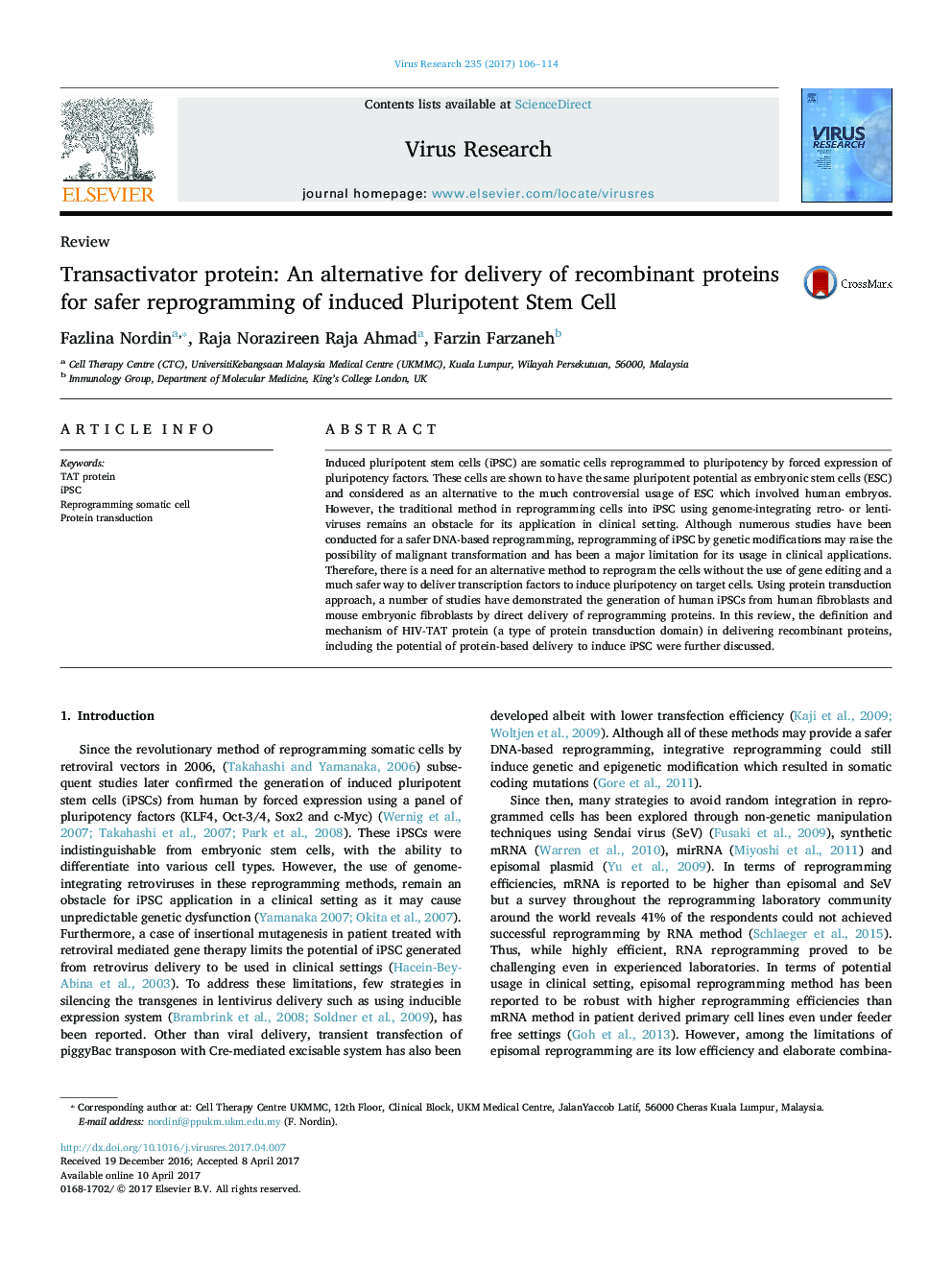| Article ID | Journal | Published Year | Pages | File Type |
|---|---|---|---|---|
| 5675330 | Virus Research | 2017 | 9 Pages |
Abstract
Induced pluripotent stem cells (iPSC) are somatic cells reprogrammed to pluripotency by forced expression of pluripotency factors. These cells are shown to have the same pluripotent potential as embryonic stem cells (ESC) and considered as an alternative to the much controversial usage of ESC which involved human embryos. However, the traditional method in reprogramming cells into iPSC using genome-integrating retro- or lenti- viruses remains an obstacle for its application in clinical setting. Although numerous studies have been conducted for a safer DNA-based reprogramming, reprogramming of iPSC by genetic modifications may raise the possibility of malignant transformation and has been a major limitation for its usage in clinical applications. Therefore, there is a need for an alternative method to reprogram the cells without the use of gene editing and a much safer way to deliver transcription factors to induce pluripotency on target cells. Using protein transduction approach, a number of studies have demonstrated the generation of human iPSCs from human fibroblasts and mouse embryonic fibroblasts by direct delivery of reprogramming proteins. In this review, the definition and mechanism of HIV-TAT protein (a type of protein transduction domain) in delivering recombinant proteins, including the potential of protein-based delivery to induce iPSC were further discussed.
Keywords
Related Topics
Life Sciences
Immunology and Microbiology
Virology
Authors
Fazlina Nordin, Raja Norazireen Raja Ahmad, Farzin Farzaneh,
